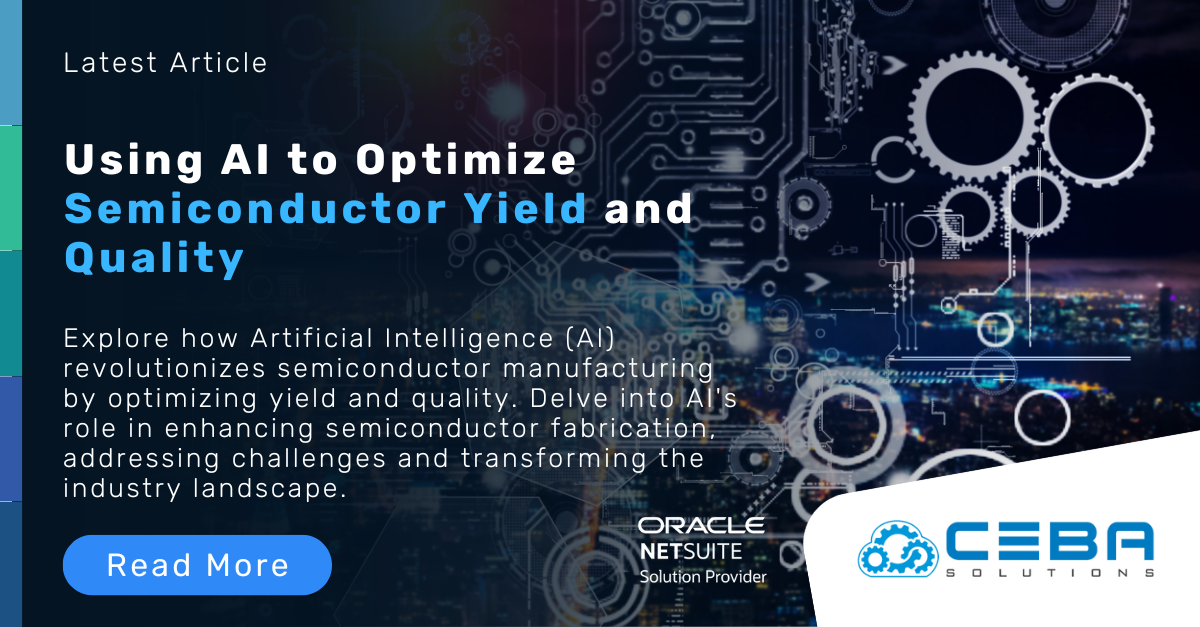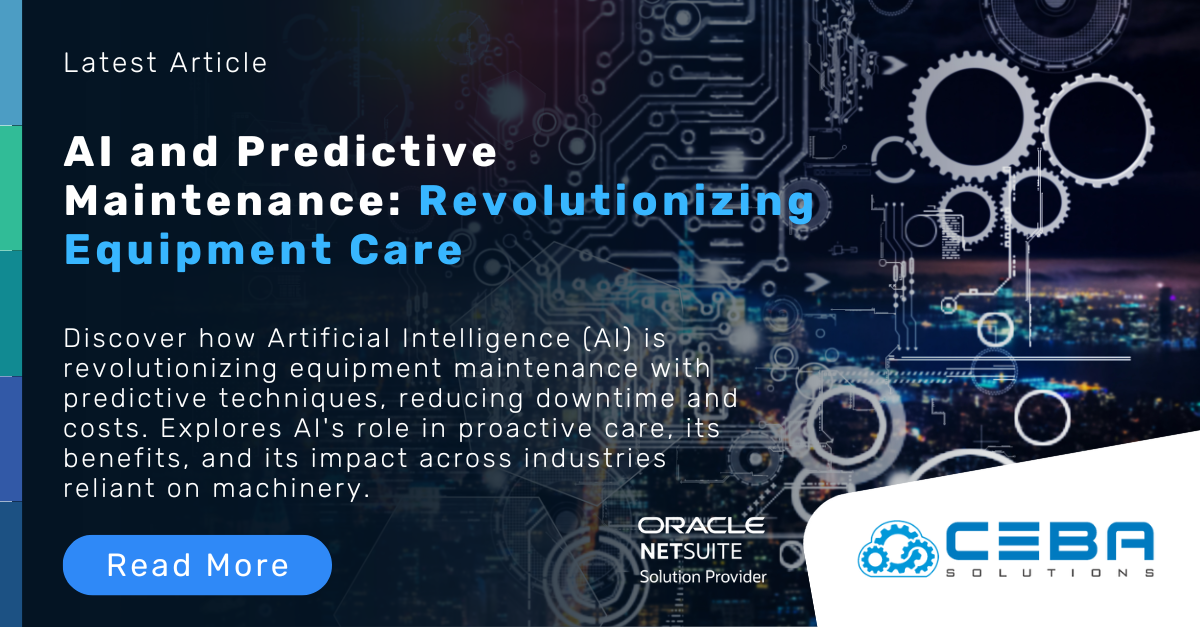
Adoption of Artificial Intelligence and Machine Learning: Revolutionizing Industries
Adoption of Artificial Intelligence and Machine Learning: Revolutionizing Industries
Artificial Intelligence (AI) and Machine Learning (ML) have emerged as transformative technologies, reshaping industries and driving innovation across the globe. As businesses increasingly adopt AI and ML, they unlock new levels of efficiency, accuracy, and insight, enabling them to solve complex problems and create competitive advantages. This article explores how the adoption of AI and ML is revolutionizing various industries, highlighting key applications and the benefits they bring.
Healthcare
AI and ML are revolutionizing healthcare by improving diagnostics, enhancing patient care, and streamlining administrative processes.
Diagnostics and Imaging
AI algorithms can analyze medical images with high accuracy, aiding in the early detection of diseases such as cancer. Machine learning models trained on vast datasets can identify patterns and anomalies that may be missed by human radiologists. This capability not only enhances diagnostic accuracy but also allows for earlier intervention, significantly improving patient outcomes. For instance, AI can detect minute changes in tissue that could indicate the onset of cancer long before they become visible to the human eye.
Personalized Medicine
AI and ML enable personalized treatment plans based on a patient’s genetic makeup, lifestyle, and medical history. This approach tailors therapies to individual patients, enhancing the effectiveness of treatments and reducing the risk of adverse effects. By leveraging data from various sources, healthcare providers can develop more precise and effective treatment plans, leading to better results and improved overall patient satisfaction.
Predictive Analytics
Predictive analytics powered by AI can forecast disease outbreaks, patient admissions, and treatment outcomes. By analyzing historical data and current trends, AI can help healthcare providers allocate resources efficiently and improve patient care. For example, hospitals can predict when they might see a surge in patient admissions and prepare accordingly, ensuring they have the necessary staff and resources in place.
Administrative Efficiency
AI-driven automation of administrative tasks, such as appointment scheduling and billing, reduces the workload on healthcare staff and minimizes errors. This allows healthcare professionals to focus more on patient care and less on administrative duties, enhancing the overall efficiency of healthcare operations. Automation also speeds up processes, reduces wait times for patients, and improves the accuracy of administrative tasks, leading to a smoother operation.
Finance
The finance industry is leveraging AI and ML to enhance decision-making, improve customer experiences, and increase security.
Algorithmic Trading
AI and ML algorithms analyze market data and execute trades at speeds and accuracies beyond human capability. This leads to more profitable trading strategies and reduced market risks. These algorithms can identify trends and patterns that human traders might overlook, leading to better-informed trading decisions and increased profits.
Risk Management
AI models assess credit risk, fraud risk, and market risk by analyzing large datasets in real-time. This allows financial institutions to make better-informed decisions and mitigate potential threats. AI can also help in identifying fraudulent activities by spotting unusual patterns and behaviors in transaction data, improving security and reducing financial losses.
Customer Service
AI-powered chatbots and virtual assistants provide 24/7 customer support, handling inquiries and transactions efficiently. This enhances customer satisfaction and reduces operational costs. Chatbots can handle routine queries, freeing up human agents to tackle more complex issues, improving overall service quality and customer experience.
Fraud Detection
Machine learning algorithms detect fraudulent activities by identifying unusual patterns and behaviors in transaction data. These systems continuously learn and adapt to new fraud tactics, improving detection rates and protecting both financial institutions and their customers from fraudulent activities.
Retail
AI and ML are transforming the retail industry by optimizing operations, personalizing customer experiences, and enhancing inventory management.
Personalized Recommendations
AI algorithms analyze customer behavior and preferences to provide personalized product recommendations. This increases sales and improves customer satisfaction by offering products that are more likely to meet individual customer needs. Retailers can use these recommendations to create a more engaging shopping experience and boost customer loyalty.
Inventory Management
Machine learning models predict demand patterns and optimize inventory levels, reducing stockouts and overstock situations. This leads to more efficient supply chain operations and ensures that customers can find the products they need when they need them. By accurately forecasting demand, retailers can maintain optimal inventory levels, reducing costs and improving customer satisfaction.
Customer Insights
AI-driven analytics provide retailers with deep insights into customer behavior, preferences, and trends. This information helps in tailoring marketing strategies and enhancing customer engagement. Retailers can use these insights to create more targeted and effective marketing campaigns, improving overall business performance.
Automated Customer Service
Chatbots and virtual assistants handle customer queries and support tasks, providing quick and accurate responses. This improves the customer experience and frees up staff for more complex issues, enhancing overall customer service efficiency. Automation also reduces response times and improves the accuracy of information provided to customers, leading to higher satisfaction.
Manufacturing
AI and ML are driving the fourth industrial revolution, known as Industry 4.0, by enhancing manufacturing processes, improving quality control, and enabling predictive maintenance.
Predictive Maintenance
AI algorithms predict equipment failures by analyzing sensor data and historical performance. This allows for proactive maintenance, reducing downtime and repair costs. By addressing potential issues before they become serious problems, manufacturers can keep their operations running smoothly and efficiently, improving productivity and reducing costs.
Quality Control
Machine learning models inspect products for defects with high precision, ensuring consistent quality standards. Automated quality control reduces the reliance on manual inspections and minimizes errors, leading to higher quality products and increased customer satisfaction. AI can also identify patterns in defects, helping manufacturers improve their processes and reduce waste.
Process Optimization
AI optimizes manufacturing processes by analyzing production data and identifying inefficiencies. This leads to increased productivity, reduced waste, and lower operational costs. Manufacturers can use AI to streamline their operations, improve overall efficiency, and reduce costs.
Supply Chain Management
AI-driven supply chain management systems enhance logistics, inventory control, and demand forecasting. This results in more efficient operations and better responsiveness to market changes. By optimizing the supply chain, manufacturers can reduce costs, improve delivery times, and increase customer satisfaction.
Transportation and Logistics
AI and ML are revolutionizing transportation and logistics by optimizing routes, improving safety, and enhancing customer experiences.
Autonomous Vehicles
AI-powered autonomous vehicles navigate and operate with minimal human intervention. These vehicles enhance safety, reduce transportation costs, and improve efficiency. Autonomous vehicles can operate around the clock without the need for breaks, leading to increased productivity and reduced costs.
Route Optimization
Machine learning algorithms optimize delivery routes based on factors like traffic conditions, weather, and delivery windows. This reduces fuel consumption, delivery times, and operational costs. By finding the most efficient routes, transportation companies can save time and money, improving overall business performance.
Predictive Maintenance
AI predicts maintenance needs for transportation fleets by analyzing usage patterns and performance data. This reduces downtime and extends the lifespan of vehicles. Proactive maintenance helps prevent unexpected breakdowns, ensuring that vehicles are always ready for use and improving overall operational efficiency.
Customer Experience
AI-driven platforms provide real-time tracking and updates to customers, enhancing transparency and satisfaction. Personalized communication and recommendations further improve the customer experience, ensuring that customers stay informed and engaged throughout the delivery process. This leads to higher customer satisfaction and loyalty.
Education
AI and ML are transforming education by personalizing learning experiences, enhancing administrative processes, and providing insights into student performance.
Personalized Learning
AI algorithms tailor educational content and pacing to individual student needs. This personalized approach improves learning outcomes and student engagement. By addressing each student's unique learning style and pace, AI helps create a more effective and enjoyable learning experience.
Administrative Efficiency
AI automates administrative tasks such as grading, scheduling, and resource allocation. This reduces the workload on educators and allows them to focus on teaching. By streamlining administrative processes, AI helps educational institutions operate more efficiently and effectively.
Student Performance Analytics
Machine learning models analyze student performance data to identify strengths, weaknesses, and learning patterns. This enables educators to provide targeted support and interventions. By understanding each student's progress and challenges, educators can offer more personalized and effective guidance, improving overall student outcomes.
Virtual Tutors
AI-powered virtual tutors provide personalized assistance to students, offering explanations, answering questions, and guiding them through coursework. This support enhances the learning experience and outcomes, helping students achieve their academic goals and improving overall satisfaction.
Conclusion
The adoption of AI and ML is revolutionizing industries by enhancing efficiency, improving decision-making, and providing personalized experiences. As these technologies continue to evolve, their impact will only grow, driving further innovation and transformation. Businesses that embrace AI and ML will be better positioned to compete in the digital age, leveraging these powerful tools to achieve new levels of success and growth. The future of AI and ML promises exciting advancements and opportunities, making it essential for industries to stay ahead of the curve and harness the full potential of these technologies. By continuing to innovate and adapt, businesses can ensure they remain competitive and successful in the ever-evolving digital landscape.


















